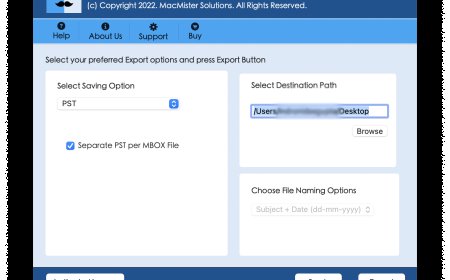Conflict Management: Strengthening Relationships Through Healthy Resolution
Learn effective conflict management strategies to handle disagreements in relationships and the workplace with clarity and calm. Discover how healthy communication and emotional awareness can turn conflict into growth.

Conflict management plays a central role in how individuals, families, teams, and organizations function on a daily basis. It is the process of addressing disagreements in ways that are constructive, respectful, and solution-oriented. From subtle misunderstandings to direct clashes, conflict is an unavoidable part of life. The key to maintaining healthy relationships lies in how those conflicts are handled, not in whether they occur.
At its core, conflict management is about maintaining harmony without sacrificing authenticity. It allows people to express differences without damage, work through problems with logic and empathy, and ultimately build stronger, more resilient connections. In both personal and professional spaces, being able to deal with disagreement calmly can prevent unnecessary escalation and long-term frustration.
Why Conflict Happens
Conflict doesnt arise without reason. Most disagreements originate from one or more of the following:
-
Different communication styles
-
Mismatched priorities or goals
-
Cultural or value-based differences
-
Lack of clarity or boundaries
-
Unresolved past issues
Often, conflict results not from what is said, but how it is saidor worse, what is left unsaid. Silent assumptions, unspoken expectations, or misinterpreted intentions create distance and discomfort, especially when communication breaks down.
Understanding what leads to conflict can reduce its intensity and make it easier to address early.
Common Forms of Conflict
Being able to recognize the type of conflict you're facing can help determine the best way to handle it.
1. Personal/Internal Conflict
This is the inner tug-of-war individuals experience when dealing with decisions, doubts, or emotional turmoil.
Example: Choosing between staying in a stable job and pursuing a creative passion.
2. Interpersonal Conflict
Occurs between individualswhether friends, colleagues, partners, or family members.
Example: A sibling disagreement over shared responsibilities in caring for aging parents.
3. Workplace Conflict
Professional environments often breed conflict due to differing opinions, deadlines, or leadership styles.
Example: Team members struggling with differing expectations regarding roles in a project.
4. Group or Community Conflict
These conflicts are broader and may involve ideological, political, or cultural differences between larger social groups.
Consequences of Poorly Managed Conflict
Ignoring or mismanaging conflict often leads to deeper issues that affect more than just the people directly involved. The ripple effect can be felt emotionally, psychologically, and even physically.
Potential consequences include:
-
Damaged relationships
-
Heightened anxiety or depression
-
Loss of trust
-
Reduced workplace productivity
-
Toxic group dynamics
-
Resentment or emotional withdrawal
In some cases, unresolved conflict creates long-term mental health challenges that require professional attention. Proactive management helps avoid this buildup and preserves mutual respect.
Skills and Strategies for Effective Conflict Management
Managing conflict well is not about winning or being right. It is about resolution, understanding, and emotional maturity. Here are strategies that consistently promote healthy outcomes:
1. Be Willing to Listen Without Judgment
Many conflicts persist simply because people feel unheard. When individuals feel dismissed or invalidated, they may respond with anger, silence, or passive resistance.
Active listening involves:
-
Maintaining open body language
-
Letting the other person speak without interruptions
-
Clarifying to avoid assumptions
-
Summarizing what was heard to confirm understanding
When people feel genuinely listened to, defenses lower and resolution becomes possible.
2. Manage Emotions Before Responding
Strong emotions are natural during conflict, but unchecked reactions can cause long-lasting harm. Taking time to breathe, pause, or reflect before replying can change the direction of a conversation.
Ways to stay calm:
-
Focus on your breath
-
Mentally pause before replying
-
Avoid raising your voice or using harsh tones
-
Step away temporarily if needed
Self-regulation prevents unnecessary escalation.
3. Speak Clearly, Honestly, and Respectfully
Rather than accusing or blaming, use statements that focus on your feelings and experience.
Instead of: You never listen to me!
Try: I feel unheard when I speak and theres no response.
Honest communication doesnt mean harsh criticism. It means expressing needs and concerns directly and constructively.
4. Focus on the Issue, Not the Person
Keep your attention on the behavior or topic at hand, not on personal traits. Personal attacks shift the focus from resolution to defense, making outcomes worse.
Example:
Problem: "Were not on the same page about deadlines."
Not helpful: "Youre lazy and disorganized."
One addresses the issue; the other causes damage.
5. Look for Shared Goals
Despite differences, people often want the same resultrespect, efficiency, peace, or progress. Finding those shared intentions can build a bridge between opposing views.
Reframing the conflict in terms of mutual goals encourages cooperation.
Conflict in the Workplace: Navigating Tensions Professionally
Modern workplaces are filled with collaboration, diverse viewpoints, and constant communicationwhich means conflict is unavoidable. However, it doesnt have to be destructive.
Ways to manage workplace conflict:
-
Set expectations early
-
Hold regular feedback sessions
-
Encourage open dialogue and transparency
-
Offer conflict resolution training
-
Consult HR or neutral parties if needed
A conflict-resilient workplace encourages innovation, inclusivity, and employee well-being. Leaders should model respectful behavior and invite healthy discussion rather than suppress it.
Conflict at Home: Balancing Emotion and Respect
Personal relationships often face conflict due to emotional closeness and long-standing patterns. While love and familiarity can be strengths, they also lead to assumptions, reactivity, and lack of boundaries.
Healthy habits in personal relationships:
-
Discuss problems without blame
-
Set time aside to talk when emotions are calm
-
Use empathy to understand the other persons experience
-
Dont wait until resentment builds
-
Apologize when needed and forgive when appropriate
Every disagreement is a chance to learn more about yourself and your partner.
Understanding Your Conflict Style
Everyone approaches conflict differently. Some avoid it entirely, others confront directly. Understanding your own default pattern helps you choose responses that serve the situation rather than just reacting on autopilot.
Common conflict styles:
-
Avoidant: Delays or evades conflict
-
Competitive: Focuses on winning
-
Accommodating: Puts others first, sometimes at a personal cost
-
Collaborative: Seeks solutions that meet everyones needs
-
Compromising: Aims for middle ground
Developing a flexible, collaborative approach allows you to adapt to different personalities and situations.
When to Get Support
Not all conflicts can be resolved alone. In some casessuch as ongoing family disagreements, emotional trauma, or recurring interpersonal patternssupport from a professional becomes essential.
Therapy can offer insight into behavioral patterns, communication blocks, and underlying emotional wounds. It allows people to approach conflict more mindfully and break free from old cycles.
For individuals or couples looking for practical strategies and emotional clarity, reaching out to the best psychologist in Gurgaon Amita Devnani can be a turning point. Her work in emotional wellness and relational dynamics equips clients with the skills to handle even the most difficult conversations with confidence and calm.
Final Reflection
Conflict will always be part of lifebut it doesnt have to control the quality of your relationships or peace of mind. With self-awareness, emotional intelligence, and effective communication, you can handle conflict in ways that build connection rather than break it down.
The ability to handle disagreements maturely is one of the most valuable life skills. It makes teams stronger, families closer, and individuals more emotionally balanced. Instead of reacting with anger or silence, choosing thoughtful responses creates space for real understanding.
Healthy conflict management isnt about avoiding discomfort. Its about working through it with respect, clarity, and patienceso that what lies on the other side is stronger than what came before.




































